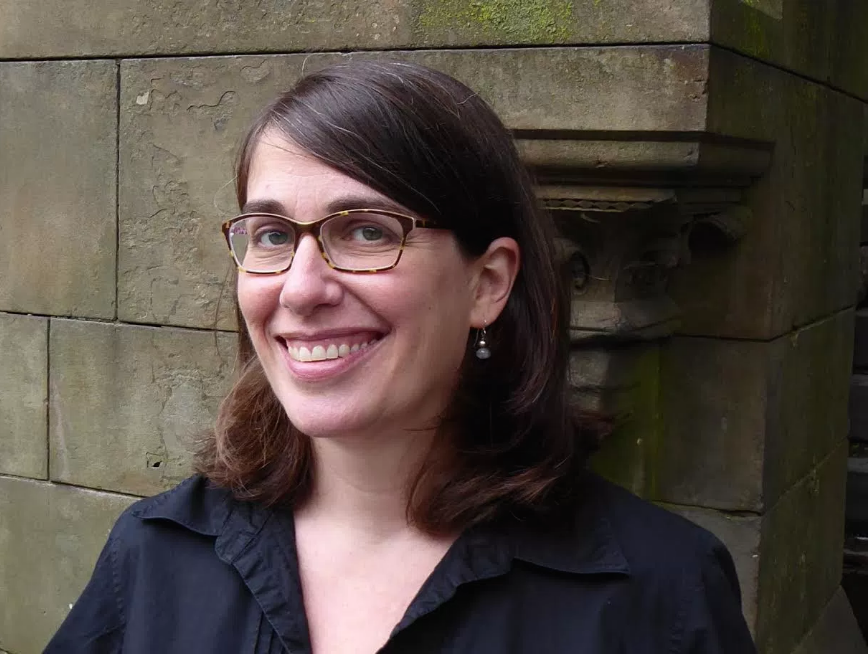
NSSR’s Rachel Sherman Explores ‘Anxieties of Affluence’ in New Book
Scott and Olivia live in a large renovated apartment in Manhattan and spend weekends at their second home in Connecticut. They employ a part-time personal assistant, a nanny-housekeeper, and occasionally, a personal chef. They usually travel in business class, though when their children were small, the family often flew on private planes.
Scott doesn’t like talking about his well-to-do lifestyle — in fact, he’s pretty ashamed of it.
Since he was a child, Scott felt that, “Yeah, this is kind of different. And, it’s something to hide.”
Scott isn’t alone. Many of the 50 affluent New Yorkers Rachel Sherman interviewed for her new book, Uneasy Street: the Anxieties of Affluence, feel driven to conceal the extent of their wealth. Others take pains to be “good” rich people, working hard, avoiding ostentatious consumption, donating money, volunteering, and raising un-entitled children.
As Sherman, a professor of sociology at The New School for Social Research and Eugene Lang College, reveals, there is an enormous stigma attached to wealth — and many of her interviewees go to great lengths to avoid it. The problem, however, is that in suppressing the details of their wealth, the top 1 and 2 percent also suppresses conversation around the profound income inequality impacting society.
“The urge to hide one’s affluence is a social norm that has to be thought about,” Sherman says in an interview with Research Matters, “precisely because it allows us not to think about income inequality. If we imagine that money is not something that’s polite to talk about — that it’s crass or gauche to do so — then the facts of the unequal distribution of wealth can remain below the surface.”
Sherman’s book challenges many of our assumptions about the wealthy as being “unconflicted” about their advantages and how they display them, as she puts it in a widely read New York Times column. One need only look to the braggadocio of Donald Trump or the extravagance of The Real Housewives for proof. But not all wealthy people are keen on flaunting the price tags of their purchases.
“The people I spoke with expressed a deep ambivalence about identifying as affluent,” Sherman says. “Rather than brag about their money or show it off, they kept quiet about their advantages. They described themselves as ‘normal’ people who worked hard and spent prudently, distancing themselves from common stereotypes of the wealthy as ostentatious, selfish, snobby, and entitled. Ultimately, their accounts illuminate a moral stigma of privilege.”
Which brings us back to Scott and Olivia. ”Since he was a child,” Sherman writes in Uneasy Street, “Scott has been self-conscious about his wealth. He recalled feeling sensitive to comments classmates would make about the size of his family’s house; in college, he became a leftist and obscured his background as much as possible.” Today, he operates much the same way. When Sherman interviewed him in 2009, Scott was overseeing renovation of an Upper West Side apartment worth $4.5 million. But he and Olivia weren’t exactly comfortable living there.
“I mean, we’re doing our best, with our clutter and junk, to, like, take the majesty and grandeur out of it,” she told Sherman. “But, when I come [home], I feel like ‘this isn’t me’ … This doesn’t reflect who I feel like I am in the world, and who I want to be in the world.”
Scott and Olivia have tried to avoid the stigma by portraying themselves as hard workers and reasonable consumers — which, to an extent, they are. But by associating themselves symbolically to the broad and legitimate American “middle,” they avoid the shame of being affluent while “remaining materially at the top,” Sherman says.
“These efforts respond to widespread judgments of the individual behaviors of wealthy people as morally meritorious or not,” Sherman says. “Yet what’s crucial to see is that such judgments distract us from any possibility of thinking about redistribution. When we evaluate people’s moral worth on the basis of where and how they live and work, we reinforce the idea that what matters is what people do, not what they have. With every such judgment, we reproduce a system in which being astronomically wealthy is acceptable as long as wealthy people are morally good.”
The project has roots in Sherman’s longtime interest in structures of inequality in the United States and in the evolution of her thinking over the course of two previous ethnographic projects. It was during her dissertation research on luxury hotels — which she ultimately developed into her 2007 book Class Acts: Service and Inequality in Luxury Hotels — that Sherman identified a similar ambivalence about wealth among hotel guests, who were adamant that it was important to treat workers well.
“I wouldn’t have talked about it this way then,” she said of the hotel guests she interviewed, “but I think they wanted to be morally worthy of their privilege.”
As Sherman has observed, there’s an urging, especially among liberal and left social critics, for advantaged people to acknowledge their privilege. However, getting a few people to admit they’re part of the 1 percent “is not necessarily going to change an unequal system of accumulation and distribution of resources,” Sherman says. For that, society needs to reckon with the way our system functions.
“We need a different kind of conversation about distribution of resources that has a different moral aspect,” Sherman says. “That conversation has to be about what’s a morally legitimate way for people to live, and not about whether individuals at the top of the income distribution are worthy of the money that they have.”